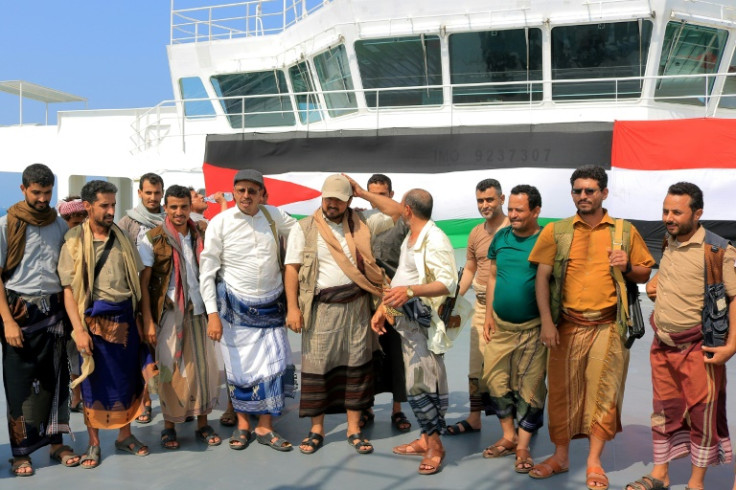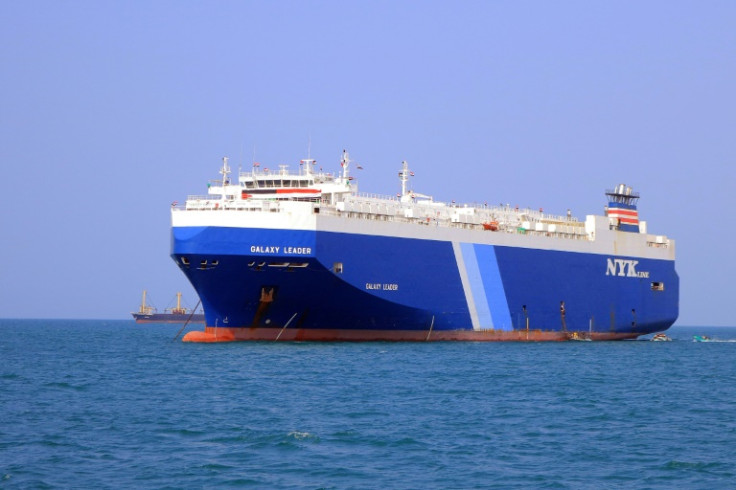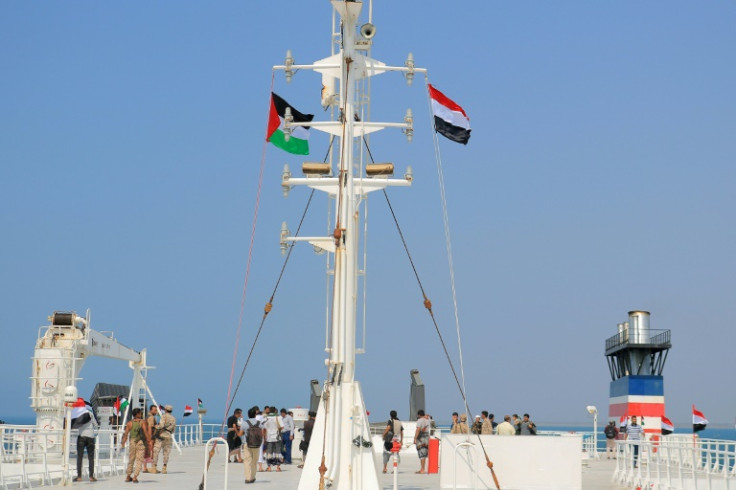
More than two months after Yemen's Houthi rebels captured the Galaxy Leader cargo ship and detained its crew, the Iran-backed rebels have turned the vessel into a domestic "tourist attraction".
For about a dollar per trip, male-only groups of visitors can board wooden boats five times a week to the hijacked car carrier, which the Houthis hail as a trophy in their fight in solidarity with the Palestinians.
Since shortly after the Israel-Hamas war in Gaza broke out on October 7, the Houthis have launched a spate of missile and drone attacks on passing commercial ships which they say are linked to Israel.
A US-led naval coalition has responded by patrolling the Red Sea, and US and British forces have struck military sites of the Houthis, now designated a "global terrorist" group by Washington, to keep open the vital shipping lane.
This has done little to dampen the mood on the sightseeing trips to the seized vessel, which is now decorated with Yemeni and Palestinian flags and banners displaying anti-American and anti-Israel slogans.
On a recent visit, Zubair al-Haidari, from the Houthi-controlled capital Sanaa, said he had travelled for five hours to see the "Israeli ship" anchored off Hodeida on the Red Sea coast.
It is our "pride and honour... that our armed forces have accomplished this wonderful work in supporting our oppressed brothers in Palestine and in Gaza," he told AFP.
He was among some 10 visitors taking pictures with their mobile phones as they chewed khat, a plant that generates a mild high and is widely consumed in the Arabian peninsula's poorest country.
On board the ship, some visitors performed a traditional dance featuring the daggers that many Yemenis carry tucked into their belts, accompanied by chants glorifying the Houthis.
On the deck of the Galaxy Leader, none of the visitors interviewed by AFP said they had seen the 25 crew members who are Bulgarian, Filipino, Ukrainian and Mexican and whose fate remains unknown.
The Galaxy Leader is owned by a British company, which is in turn owned by an Israeli businessman.
It had been chartered by a Japanese company when it was captured on November 19 by the Houthis, who said they were acting in "solidarity" with people in the besieged Gaza Strip.
Israel's military campaign was sparked by Hamas's October 7 attack, which resulted in about 1,140 deaths in Israel, mostly civilians, according to an AFP tally of official Israeli figures. Militants also seized around 250 hostages.
Israel has vowed to destroy Hamas and Gaza's health ministry says the military offensive has killed at least 26,257 people, about 70 percent of them women and children.
Amid the Gaza war, the Houthis have launched numerous attacks against shipping in the Red Sea and the Gulf of Aden, threatening an essential global trade route.
Hizam al-Assad, of the Houthi political bureau, referred to the Galaxy Leader as a "tourist attraction" and said the visitors were "proof that the Yemeni people... are impatient to meet the enemy and confront him".
Another visitor, Hamada al-Baydani, said he had travelled 400 kilometres (250 miles) from Al-Bayda, to see the seized ship, which he labelled "a source of pride for Yemenis".
Several days after detaining the vessel, the Houthis published a video showing a military general welcoming a group they said was the crew, but the militants have not provided any information on their fate since.
After an hour on board under the scorching sun, the visitors made their way back home, chanting "God is the greatest, death to America, death to Israel".










